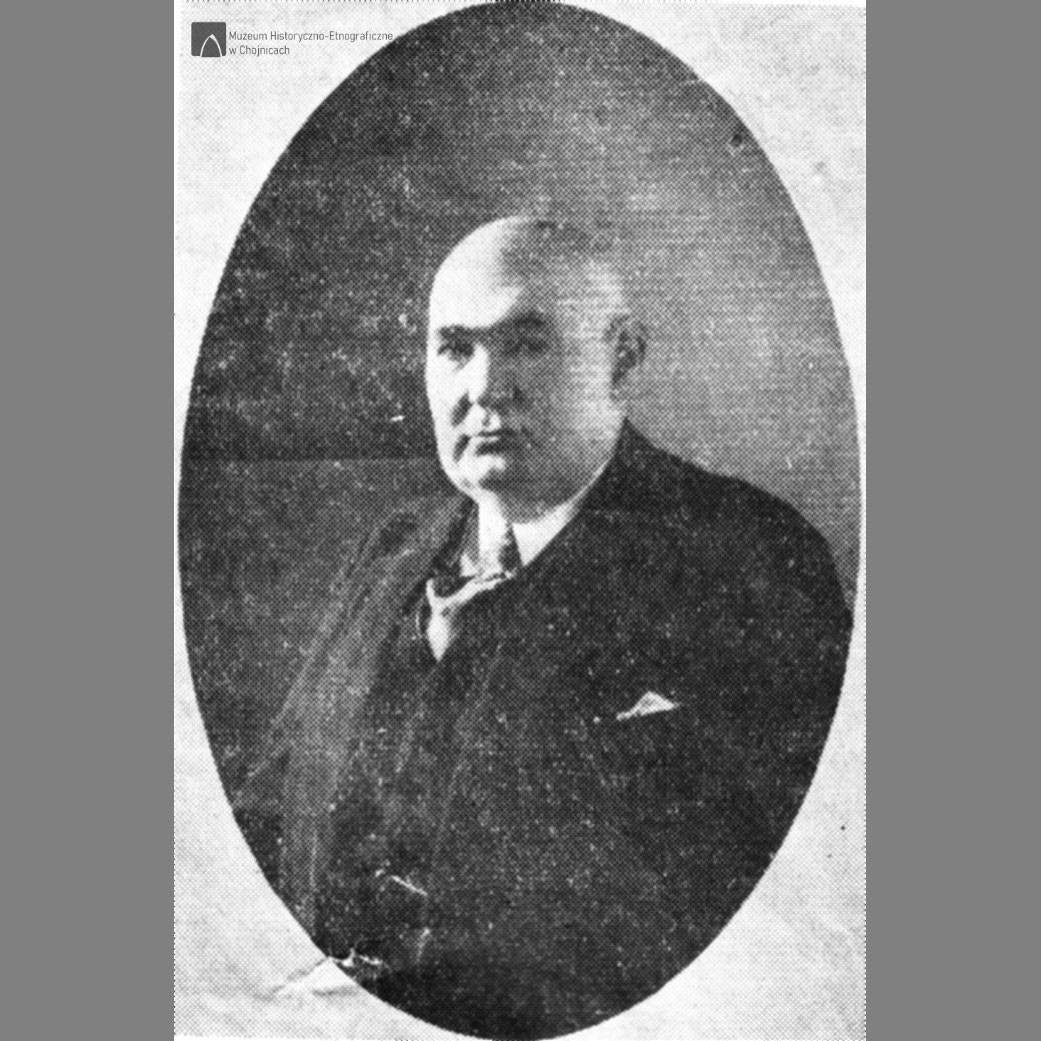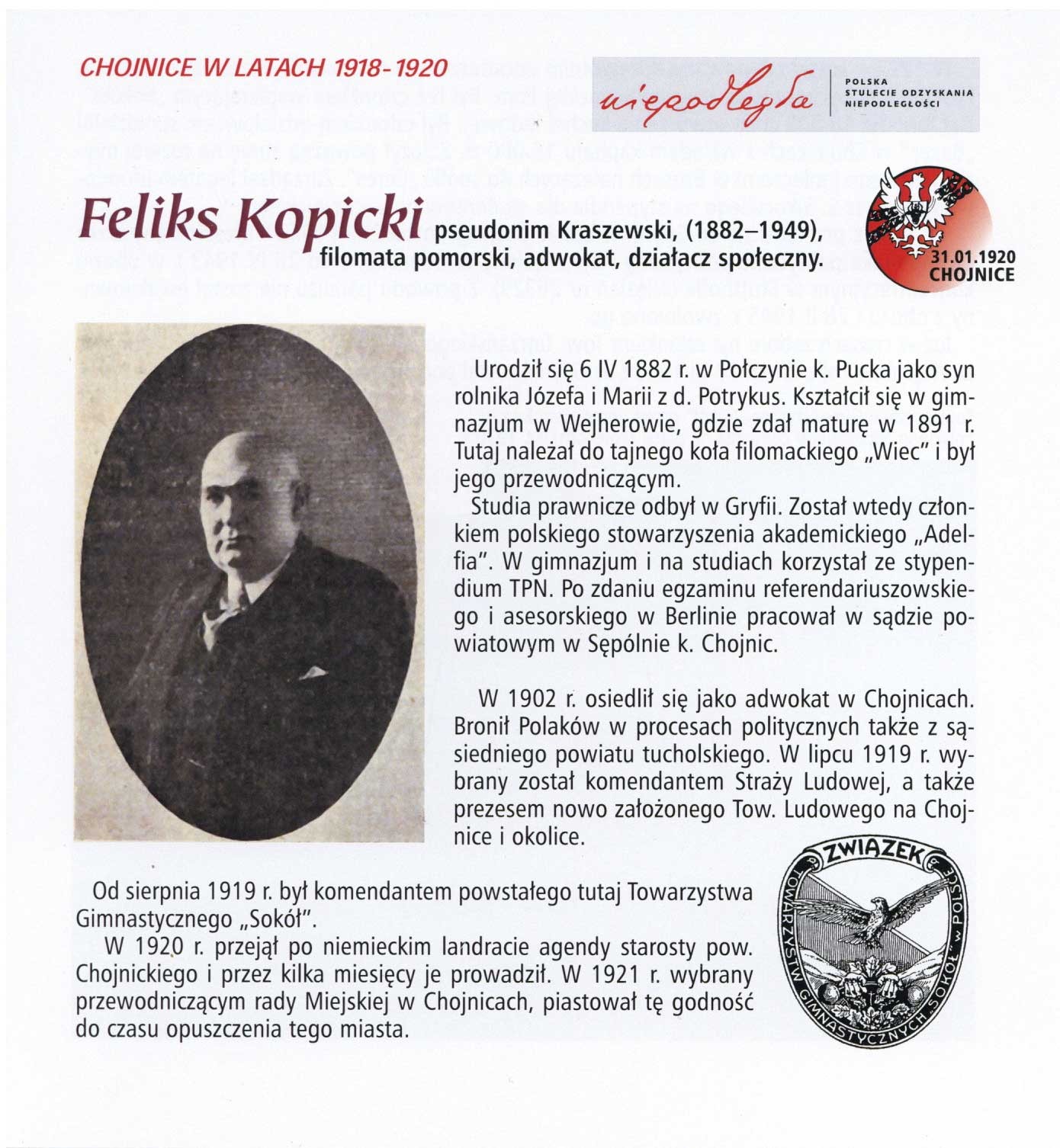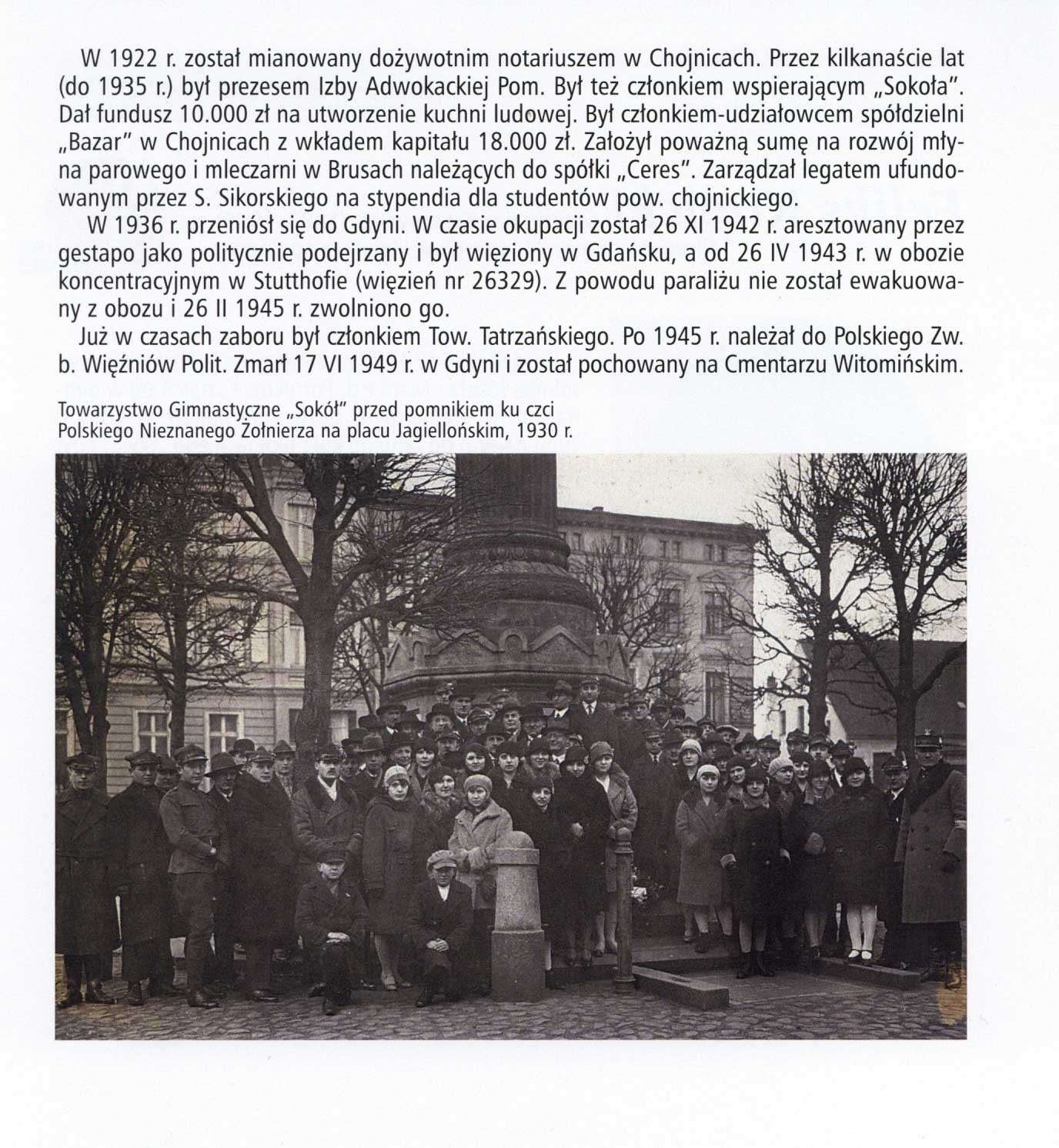
Feliks Kopicki (1872-1949), lawyer and notary, independence activist, chairman of the Town Council.
Feliks Kopicki is undoubtedly one of the people most deserving of the restoration of Chojnice to independent Poland. Raised in accordance with the philomathic ideals, he spared no effort to build the new reality. His unwavering attitude as an outstanding social activist ensured him a permanent place in the city's history during the years of the Second Republic.
Feliks Kopicki was born on 6.04.1872 in Połczyn near Puck. He attended secondary school in Wejherowo, where he graduated in 1891. Here, he belonged to the secret ‘Wiec’ Philomath circle (pseudonym ‘Kraszewski’). He studied law in Gryfia. He became a member of the Polish academic association ,,Adelphia’, which carried out educational and agitational activities among seasonal Polish workers in the Junkier estates. While in secondary school and at university, he benefited from a scholarship from the Society for Scientific Aid.
After passing the referendary and assessor's exam in Berlin, Feliks Kopicki worked in the district court in Sępólno Krajeńskie. In 1902 he settled
Chojnice and opened a law office. At the time, he was one of only two Poles among eight lawyers working in the city. He defended Poles in political trials, also from neighbouring counties, earning the respect and trust of his compatriots. Established on 11 December 1918. District People's Council elected Kopicki second deputy chairman. He was also the main organiser and president of the People's Society, as well as the first commander of the Gymnastic Society ,,Sokol’. In January 1920. The Powiat People's Council authorised Kopicki to complete the staffing of the Powiat Starosty in consultation with starost Stanisław Sikorski. On the day Polish rule was established in Chojnice, 31 January 1920, the task of F. Kopicki was to take over all units of the railway junction. At the request of Mayor Alojzy Sobierajczyk on 22.04.1920. The Town Council entrusted Kopicki with the function of chairman. Together with representatives of the town of Chojnice, he sat on the County Assembly, holding the position of deputy chairman. In the term 1929 - 1933, he headed the supervisory board of the district Communal Savings Bank.
Feliks Kopicki enjoyed recognition in the professional field. In 1922, he was appointed a notary for life and served as president of the Pomeranian Bar Association until 1935. In addition to his social activities, he also looked after his interests. He was one of the most serious shareholders of the company ,,Bazar’ in Brusy with a capital contribution of 18000 zloty. He invested a considerable amount of money for the development of the mill and dairy of the company ,,Ceres’ in Brusy. He managed a legacy founded by Stanisław Sikorski for scholarships for students from the Chojnice district. He also supported charitable causes - e.g. he allocated a fund of 10000 zlotys for the creation of a people's kitchen for the unemployed during the economic crisis. In addition, he had a passion for tourism, being a member of the Tatra Society.
After 1920, Mr Kopicki bought a house from Dr Max Vogel, a barrister, at 8 Jagielloński Square. In 1902, he married Elżbieta Schultz from Sępólno Krajeńskie, a German woman from Berlin. This fact was a frequent cause of accusations made against him by his political opponents. The Kopickis did not live to have children of their own; they adopted a daughter, Wanda.
In 1935. Feliks Kopicki settled in Gdynia. During the occupation, on 26.11.1942, he was arrested by the Gestapo for political reasons and imprisoned, first in Gdansk, and from 26.04.1943 in the Stutthof concentration camp. Before the evacuation of the camp on 26.02.1945, he was released due to paralysis. After the end of the Second World War, he belonged to the Polish Association of Former Political Prisoners. He died in April 1949 in Gdynia, where he was buried in the Witominski Cemetery.
While living in Chojnice, Feliks Kopicki took an active part in political life, thanks to which he gained great popularity among the local society. At 8 Jagielloński Square, on the initiative of the Kashubian-Pomeranian Association, a plaque commemorating two prominent activists, residents of the house - Feliks Kopicki and Julian Rydzkowski, was unveiled on 16 February 1991.
More information about Feliks Kopicki can be obtained from the following publications: Zbigniew Stromski, Pamięci godni. Chojnicki słownik biograficzny 1275 - 1980, Chojnice 1986 and Kazimierz Ostrowski, Poczet Zasłużonych Chojniczan, Słownik biograficzny XX wieku, Chojnice 2020.

